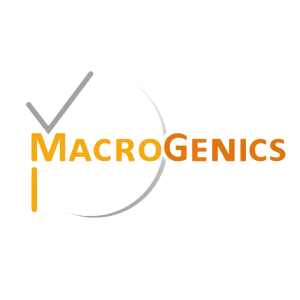MacroGenics Provides Phase 2 TAMARACK Study Early Interim Safety Data and Plans for Future Disclosures
- Early interim safety data from Phase 2 TAMARACK study, including comparison to retrospective analysis from Phase 1 study, as submitted in ASCO abstract
- Company plans to provide updated interim data, including safety and preliminary efficacy, by May 31
- Company plans to provide additional clinical data – including rPFS – in the Fall of 2024
ROCKVILLE, MD, April 03, 2024 (GLOBE NEWSWIRE) -- MacroGenics, Inc. (NASDAQ: MGNX), a biopharmaceutical company focused on discovering, developing, manufacturing and commercializing innovative antibody-based therapeutics for the treatment of cancer, today provided an update on the Phase 2 TAMARACK study of vobramitamab duocarmazine (vobra duo, previously known as MGC018) in patients with metastatic castration-resistant prostate cancer (mCRPC).
As previously disclosed, safety data from the Company’s ongoing TAMARACK Phase 2 study was submitted in early February to the American Society of Clinical Oncology (ASCO) for presentation at the upcoming Annual Meeting that begins May 31. The abstract containing this early interim data, based on a January 4, 2024 data cut-off, was not accepted. The submitted abstract is provided below.
“While the TAMARACK data will not be presented at the ASCO Annual Meeting, we intend to maintain our previously disclosed plan to share further TAMARACK interim data, including updated safety and preliminary efficacy, by the end of May,” said Scott Koenig, M.D., Ph.D., President and Chief Executive Officer. “This updated information will be based upon a future data cut-off. In addition, we still anticipate presenting updated clinical data – including radiographic progression-free survival, or rPFS, the study’s primary endpoint – in the Fall of 2024.”
Abstract as submitted on February 6, 2024:
“Title
Vobramitamab duocarmazine (vobra duo), a B7-H3 directed antibody drug conjugate (ADC) in metastatic castration resistant prostate cancer (mCRPC): Early data from the Phase 2 TAMARACK study.
Background
Vobra duo (MGC018) is an ADC with a duocarmycin-based DNA-alkylating payload. Vobra duo targets B7-H3, which is highly expressed in multiple tumor types including prostate cancer and has limited expression in normal tissue. Phase 1 testing (NCT03729596) of vobra duo at 3.0 mg/kg Q3W demonstrated anti-tumor activity in mCRPC, although adverse events resulted in high rates of dose modifications and early treatment discontinuation. Lowering the starting dose may improve tolerability, extend treatment duration, and enhance effectiveness.
Methods
TAMARACK is an ongoing randomized, open-label, Phase 2 dose selection study assessing the efficacy, safety, and tolerability of two dose levels of vobra duo (2.0 mg/kg and 2.7 mg/kg IV Q4W). The study enrolled patients (pts) with mCRPC previously treated with abiraterone, enzalutamide, or apalutamide; prior docetaxel was allowed. The primary endpoint is investigator-assessed PFS at 6 months.
Results
At data cutoff (Jan 4, 2024), 182 pts with mCRPC enrolled on TAMARACK, of which 177 received vobra duo. Enrolled pts were 46 to 89 years of age (median 70.5) with ECOG performance status ≤ 2. Thirty (
| Vobra duo 2.0 mg/kg (n=91) | Vobra duo 2.7 mg/kg (n=86) | |
| Any TEAE | 85 ( | 82 ( |
| TEAE Grade ≥ 3 | 23 ( | 27 ( |
| Serious AE | 11 ( | 17 ( |
| Drug Interruption due to AE | 10 ( | 16 ( |
| Drug Discontinuation due to AE | 4 ( | 2 ( |
| Fatal AE | 0 | 0 |
The most common (≥
Conclusions
Preliminary safety data from TAMARACK suggest that reducing the dose and frequency of vobra duo improves its safety and tolerability in men with mCRPC. The authors anticipate sharing preliminary efficacy data and updated safety data at the conference. Clinical trial information: NCT05551117.”
MacroGenics would like to thank the abstract authors, including: Johann S. De Bono, Carole Helissey, Karim Fizazi, Eric Voog, Pablo Maroto-Rey, Guilhem Roubaud, Emmanuel S. Antonarakis, Shahneen Sandhu, Neal D. Shore, Raffaele Ratta, Begoña Pérez Valderrama, Christof Vulsteke, Galina Marr, Ashley Ward, Enxu Zhao, Josep M. Piulats, on behalf of the TAMARACK Investigators.
About MacroGenics, Inc.
MacroGenics (the Company) is a biopharmaceutical company focused on discovering, developing, manufacturing and commercializing innovative monoclonal antibody-based therapeutics for the treatment of cancer. The Company generates its pipeline of product candidates primarily from its proprietary suite of next-generation antibody-based technology platforms, which have applicability across broad therapeutic domains. The combination of MacroGenics' technology platforms and protein engineering expertise has allowed the Company to generate promising product candidates and enter into several strategic collaborations with global pharmaceutical and biotechnology companies. For more information, please see the Company's website at www.macrogenics.com. MacroGenics and the MacroGenics logo are trademarks or registered trademarks of MacroGenics, Inc.
Cautionary Note on Forward-Looking Statements
Any statements in this press release about future expectations, plans and prospects for MacroGenics (“Company”), including statements about the Company’s strategy, future operations, clinical development of the Company’s therapeutic candidates, including initiation and enrollment in clinical trials, expected timing of results from clinical trials, discussions with regulatory agencies, commercial prospects of or product revenues from MARGENZA and the Company’s product candidates, if approved, manufacturing services revenue, milestone or opt-in payments from the Company’s collaborators, the Company’s anticipated milestones and future expectations and plans and prospects for the Company, as well as future global net sales of TZIELD and the Company’s ability to achieve the milestone payments set forth under the terms of the agreement with DRI (or its successors or assigns with respect to such agreement), and other statements containing the words “subject to”, "believe", “anticipate”, “plan”, “expect”, “intend”, “estimate”, “potential,” “project”, “may”, “will”, “should”, “would”, “could”, “can”, the negatives thereof, variations thereon and similar expressions, or by discussions of strategy constitute forward-looking statements within the meaning of Section 27A of the Securities Act of 1933 and Section 21E of the Securities Exchange Act of 1934. Actual results may differ materially from those indicated by such forward-looking statements as a result of various important factors, including: risks that TZIELD, vobramitamab duocarmazine, lorigerlimab, ZYNYZ, MARGENZA or any other product candidate’s revenue, expenses and costs may not be as expected, risks relating to TZIELD, vobramitamab duocarmazine, lorigerlimab, ZYNYZ, MARGENZA or any other product candidate’s market acceptance, competition, reimbursement and regulatory actions; our ability to provide manufacturing services to our customers; the uncertainties inherent in the initiation and enrollment of future clinical trials; the availability of financing to fund the internal development of our product candidates; expectations of expanding ongoing clinical trials; availability and timing of data from ongoing clinical trials; expectations for the timing and steps required in the regulatory review process; expectations for regulatory approvals; expectations of future milestone payments; the impact of competitive products; our ability to enter into agreements with strategic partners and other matters that could affect the availability or commercial potential of the Company's product candidates; business, economic or political disruptions due to catastrophes or other events, including natural disasters, terrorist attacks, civil unrest and actual or threatened armed conflict, or public health crises such as the novel coronavirus (referred to as COVID-19 pandemic); and other risks described in the Company's filings with the Securities and Exchange Commission. In addition, the forward-looking statements included in this press release represent the Company's views only as of the date hereof. The Company anticipates that subsequent events and developments will cause the Company's views to change. However, while the Company may elect to update these forward-looking statements at some point in the future, the Company specifically disclaims any obligation to do so, except as may be required by law. These forward-looking statements should not be relied upon as representing the Company's views as of any date subsequent to the date hereof.








